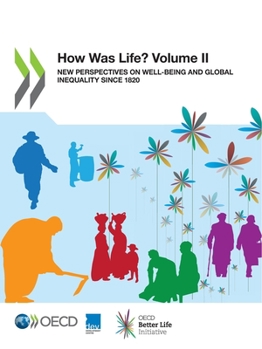How Was Life? Volume II
How was life in 1820, and how has it changed since then? This question, which was at the core of How Was Life? Global Well-being since 1820, published by the OECD in 2014, is addressed by this second volume based on a broader perspective. How Was Life? New Perspectives on Well-being and Global Inequality since 1820, presents new estimates of working hours, biodiversity loss, social spending and GDP (accounting for the 2011 round on purchasing power parities) as well as measures of inequalities in wealth, longevity and educational attainment, gender disparities and extreme poverty. A final chapter synthesises the historical evidence included both in the current and previous volume of How Was Life? through composite measures of the average well-being performance of each country, and of different within-country inequality measures. As was the case for the previous volume, this book combines both a historical and a global perspective, presenting estimates since 1820 for 25 major countries and 8 world regions. While this evidence sometimes relies on partial and limited evidence, each chapter in this book assesses the quality of the data used and identifies areas for further historical research.
This second volume of How Was Life? is the product of collaboration between the OECD and the OECD Development Centre, on one side, and a group of economic historians gathered around the CLIO-INFRA and Maddison projects, on the other. The historical evidence included in the report is organised around dimensions of well-being that mirror those used by the OECD in its report How's Life?





